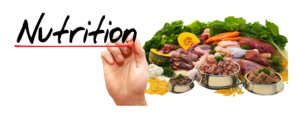
As our pets age, their nutritional needs can change. This can be due to a variety of factors such as a decrease in activity levels, a slower metabolism, and changes in body composition. Proper nutrition is essential for maintaining good health and happiness in senior pets, and it is important to understand their changing nutritional needs. In this article, we will discuss the importance of nutrition for senior pets and provide tips on how to provide the best diet for your older companion.
The Importance of Nutrition for Senior Pets
Nutrition is essential for pets of all ages, but it becomes even more important as they get older. Proper nutrition can help to maintain a healthy weight, improve joint health, and support overall health and well-being. As pets age, they may experience changes in their nutritional needs, and it is important to adapt their diets accordingly.
Changes in Nutritional Needs for Senior Pets
As pets age, they can experience a variety of changes in their nutritional needs. Some of the most common changes include:
- Decreased Activity Levels: As pets age, their activity levels can decline, which can lead to a decrease in their energy needs. This may require a reduction in the amount of food they receive, or a switch to a lower calorie diet.
- Decreased Metabolism: As pets age, their metabolism can slow down, which can make it more difficult to maintain a healthy weight. This may require a switch to a lower calorie diet or an increase in the amount of exercise they receive.
- Changes in Body Composition: As pets age, they can experience changes in their body composition, such as a loss of muscle mass and an increase in body fat. This may require a switch to a diet that is higher in protein and lower in fat.
Tips for Feeding Senior Pets
Here are a few tips to help ensure that your senior pet is receiving the proper nutrition:
- Adapted Diets: As pets age, their nutritional needs can change, and it is important to adapt their diets accordingly. This may involve switching to a lower calorie diet, increasing the amount of protein in their diet, or adding supplements to their diet.
- Small, Frequent Meals: To help maintain good digestion and prevent weight gain, it is recommended to feed senior pets small, frequent meals throughout the day.
- Hydration: Hydration is essential for good health and well-being in senior pets, and it is important to ensure that they are drinking enough water.
- Supplements: Supplements can be a great way to support overall health and well-being in senior pets. This may include supplements for joint health, digestive health, and cardiovascular health.
- Consultation with a Veterinarian: It is important to consult with a veterinarian to determine the best diet for your senior pet. They can help to assess their nutritional needs and provide recommendations for a diet that is tailored to their individual needs.
Conclusion
Proper nutrition is essential for maintaining good health and happiness in senior pets. As pets age, their nutritional needs can change, and it is important to adapt their diets accordingly. By following these tips and consulting with a veterinarian, you can help ensure that your senior pet is receiving the proper nutrition to support their overall health and well-being. With the right approach, senior pets can continue to live a happy, healthy life well into their golden years.